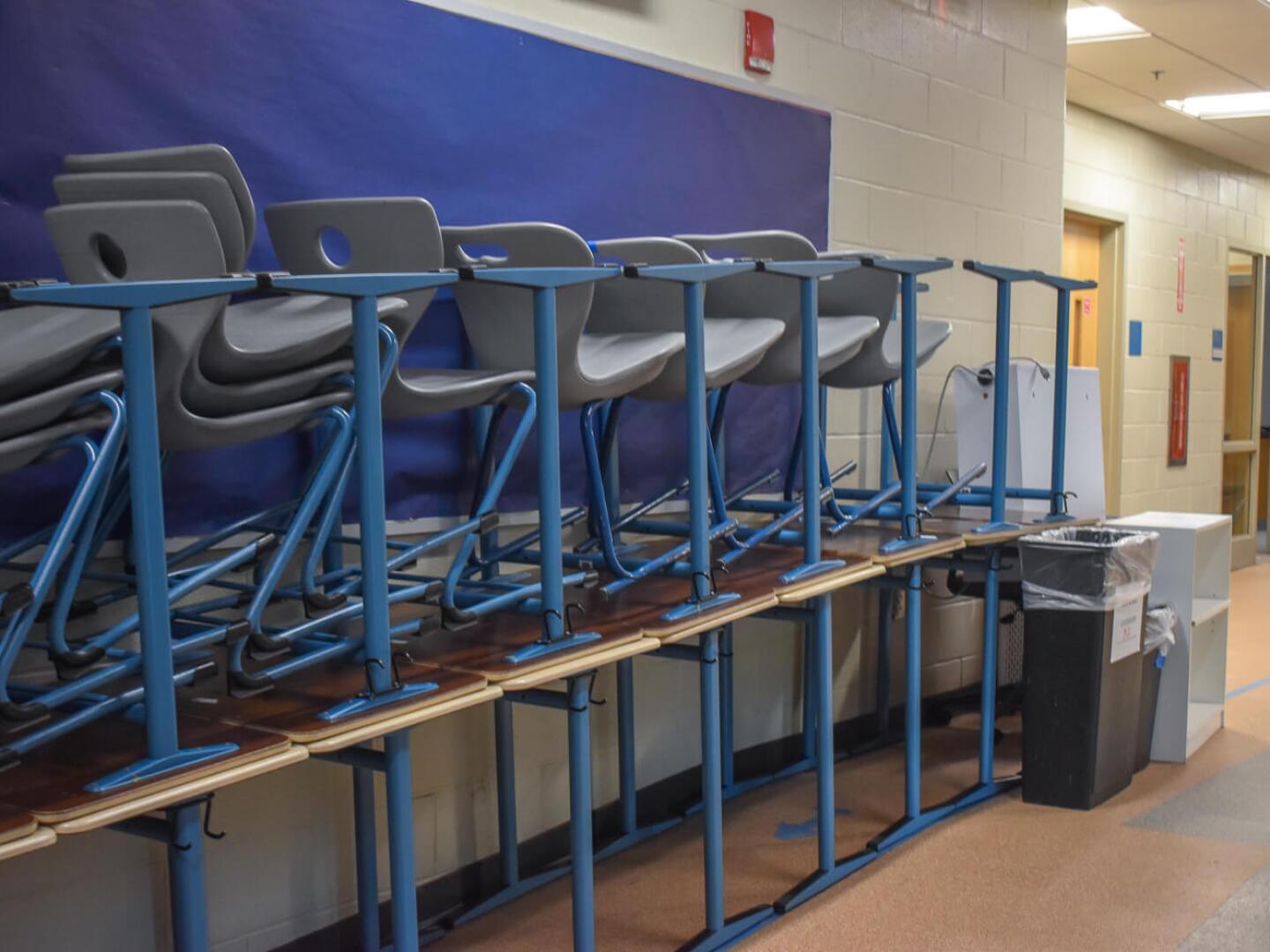On Monday, Rhode Island education officials were still waiting to learn when they’d get federal education grant funding for the current fiscal year.
In total, the frozen funds span five buckets of federal money, Rhode Island Department of Education (RIDE) spokesperson Victor Morente said in an email Monday. He added that RIDE had still not received grant notifications as of Monday, but had been notified on Friday that the grants were being unfrozen beginning the week of July 28.
“It’s my understanding that this is for remaining Title I, Title II, Title III, and Title IV-A funds,” Morente said. “These funds support teacher professional development, English language acquisition support, health and safety and Adult Basic Education.”
Morente could not yet provide specifics of how programs would be impacted at the local or district level yet.
“While final financial decisions would be made at the local level, RIDE has been in close communication with district leaders throughout the last few weeks offering support and guidance and will continue to do so,” Morente said.
The withholding of approximately $6.8 billion in federal education funding arrived in the inboxes of state education departments nationwide on the evening of June 30.
Rhode Island would have lost nearly $30 million if the funds were not unfrozen. The majority of that money, about $23.5 million, is tied to the grant programs that RIDE was notified on Friday would begin to be released.
The feds’ June 30 announcement of the temporary fund freeze came the night before education departments and school districts nationwide expected to begin allocating money for the new fiscal year beginning July 1. According to the email, the U.S. education department was reviewing funds before they could be released.
Two lawsuits, both filed in U.S. District Court for the District of Rhode Island, followed the news of the freeze.The first was filed by a coalition of Attorneys General on July 14. A second multistate lawsuit over the same disputed funds was filed on July 21 by a collection of 14 plaintiffs that comprised school districts and teachers’ unions, including Rhode Island Federation of Teachers and Health Professionals (RIFTHP).
On July 18, the U.S. education department announced it had finished reviewing and would release about $1.3 billion of the frozen funds. These funds are distributed through Title IV-B grants, which includes the 21st Century Community Learning Centers program — the only federal funding source dedicated to afterschool programming, including summer programs.
Morente said the 21st Century grants notifications, which comprised $6.5 million, have already been received by RIDE.
According to the July 21 lawsuit, educators rely on funds from grant programs that are still pending release. A memorandum filed with the suit notes that 11 union members “were recently informed that they were losing their jobs.”
A declaration from Federation President Maribeth Calabro was filed with the July 21 lawsuit. Calabro elaborated that positions funded by the frozen money — like instructional coaches, English language development staff, arts teachers, and school counselors — could be laid off or reassigned if the money is not restored in a timely fashion.
Calabro wrote that several union members have already missed out on planned professional development sessions this summer, which she wrote are important for the upkeep of teaching licenses as well as the improvement of teaching skills and curricula.
The union also relies on dues revenue, Calabro wrote, which could lessen under the funds’ freezing.
“This will diminish the organization’s ability to provide core representational services, including contract enforcement and member support,” Calabro wrote. “The reduction in bargaining unit size will weaken RIFTHP’s position in collective bargaining, limiting our ability to negotiate fair wages, working conditions, and staffing policies for our remaining members.”
The U.S. The Department of Education did not immediately respond to a request for comment on Monday.
This story was originally published by the Rhode Island Current.







